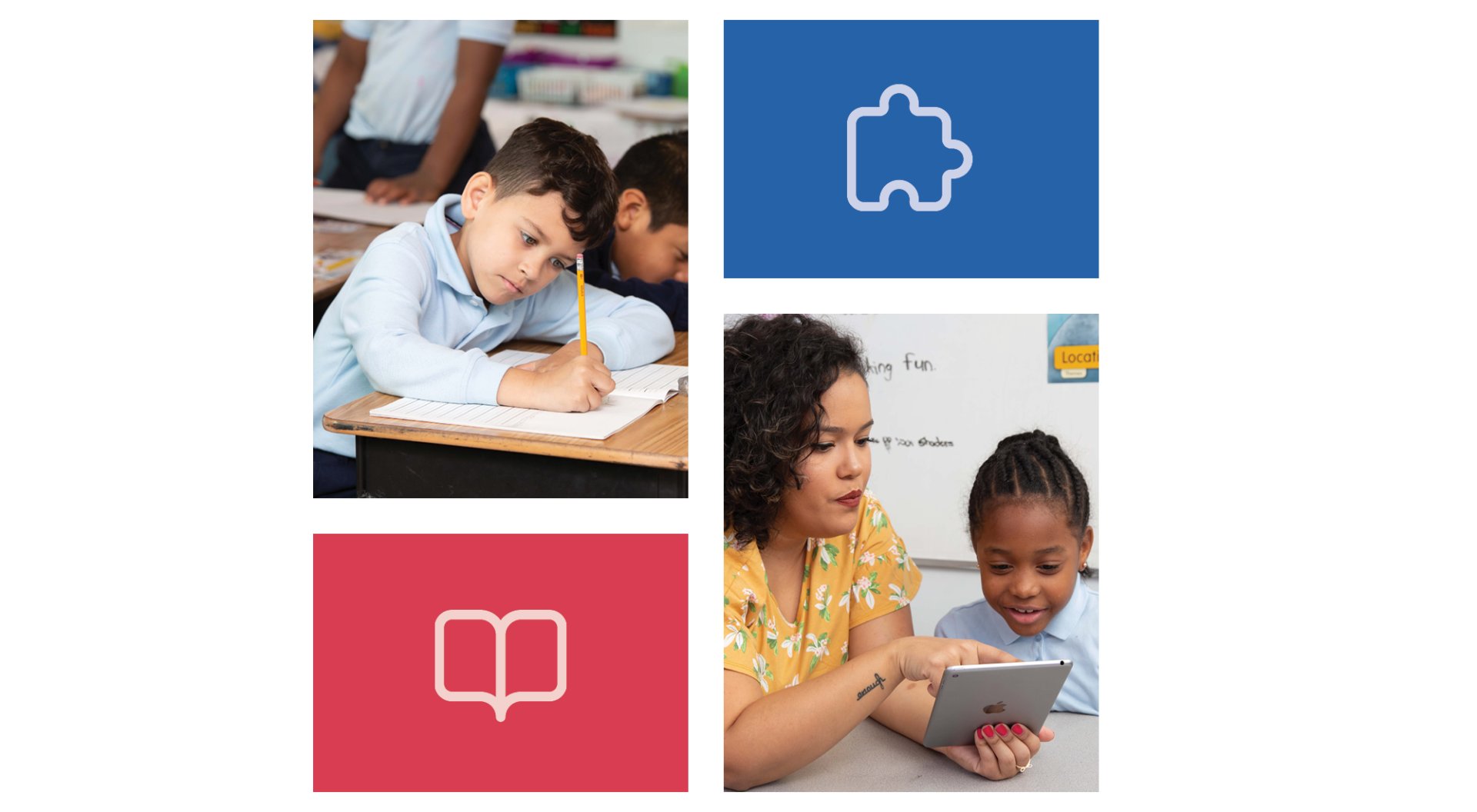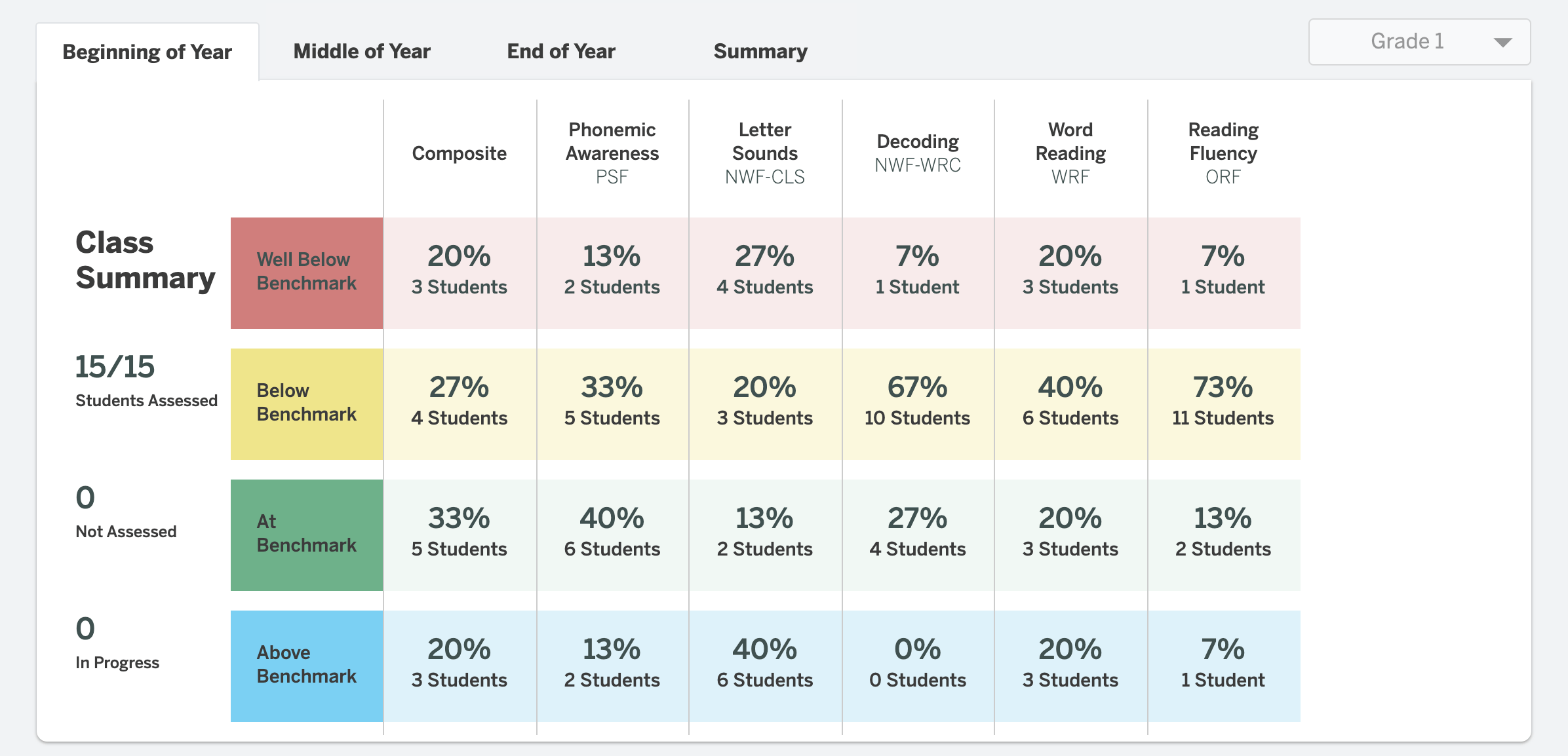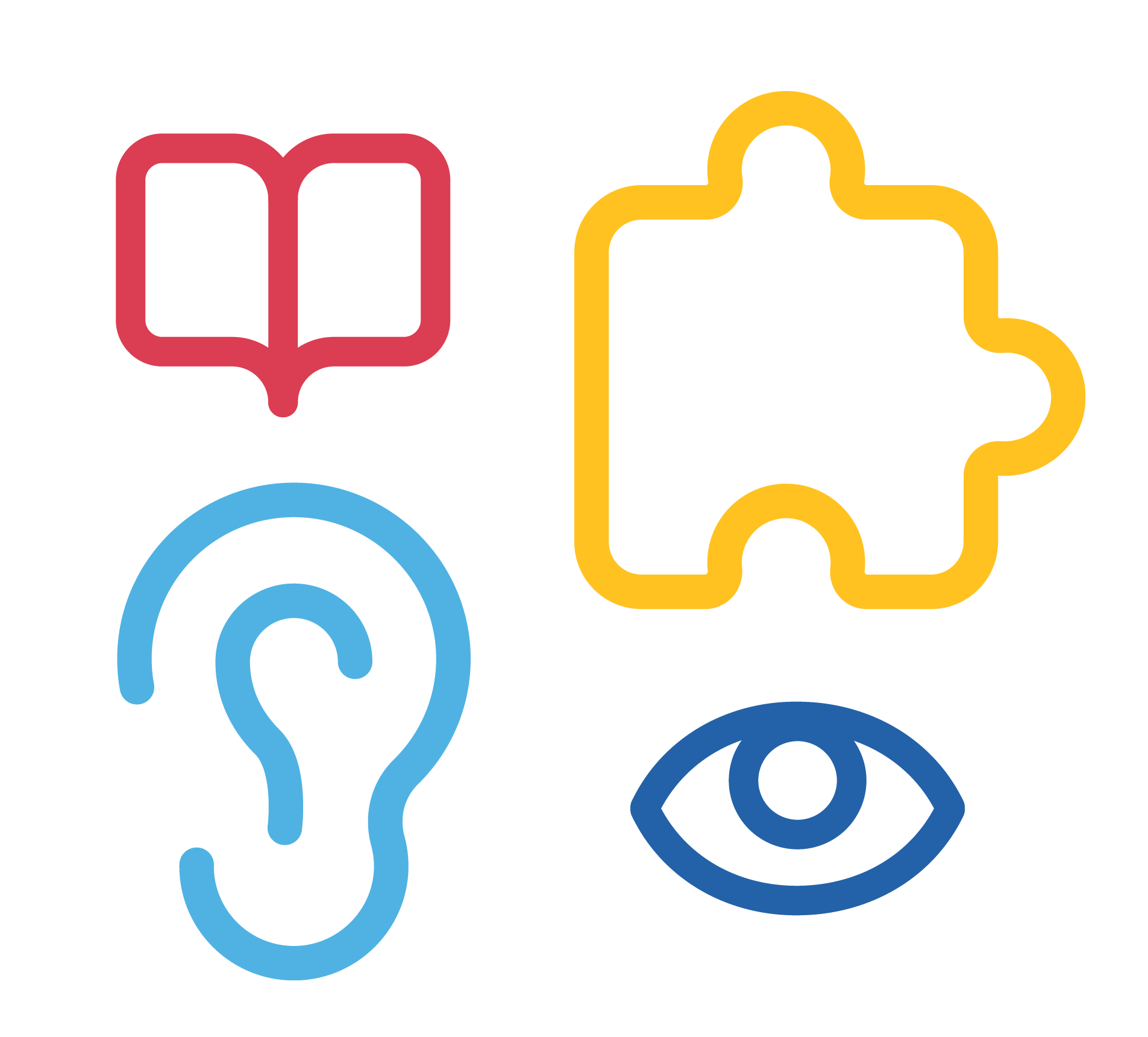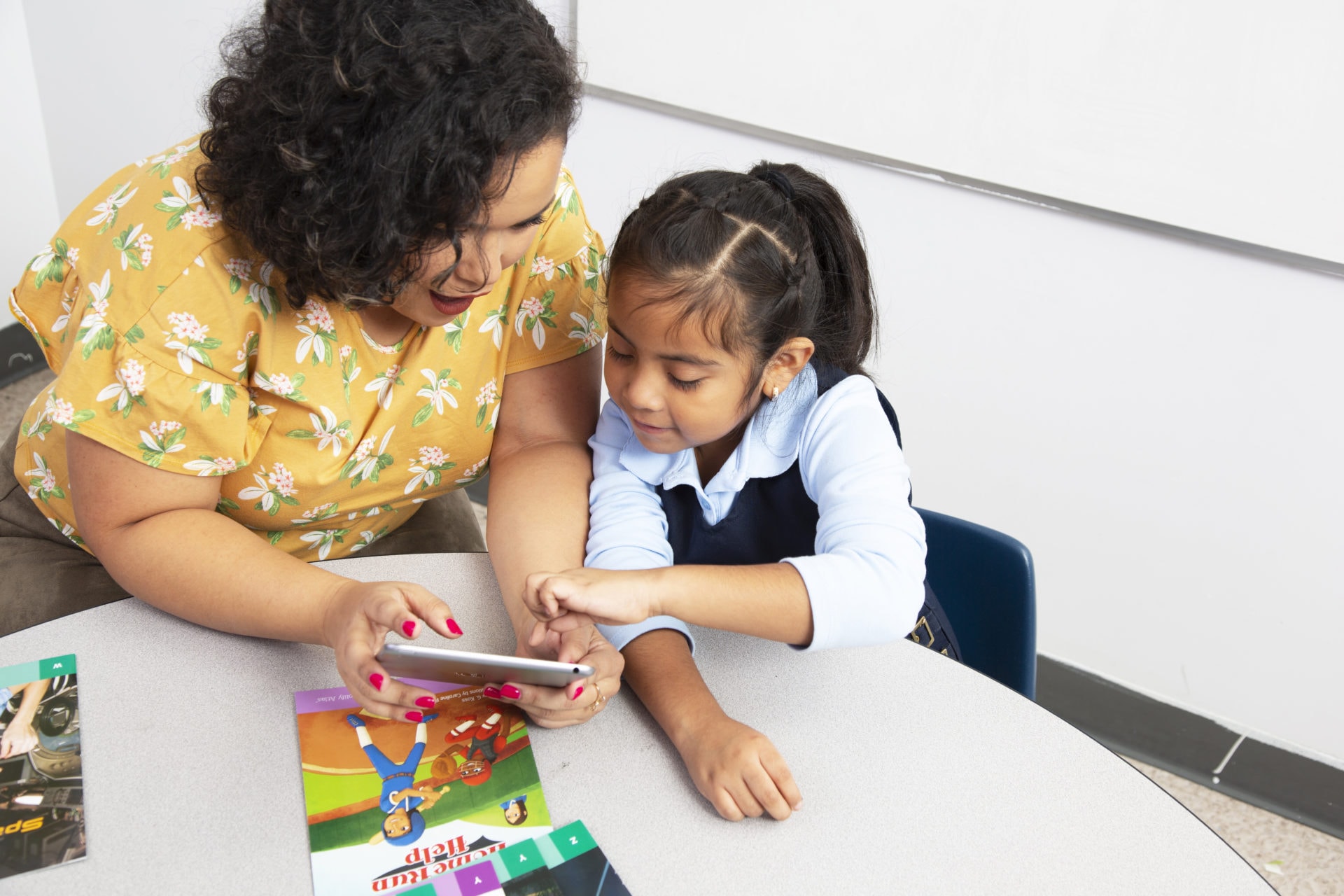Welcome to mCLASS® for grades K–6!
On this site, you’ll find resources to guide you in your review.


About the program
mCLASS offers teacher-administered assessment, intervention, and personalized instruction for grades K–6. Know exactly how to monitor and support every student in your classroom with features like:
- Precise one-minute measures based on over three decades of predictive data.
- Universal and dyslexia screening in one tool.
- Instruction that highlights observed patterns and recommends activities.
- Robust reports for teachers, specialists, administrators, and parents.
Hear from educators like you
Hear from teachers, administrators, and students across the country who are using mCLASS in their classrooms right now.
Resources to support your review
Download the resources below before you review the program to better understand the program structure, components, digital resources, and more.
- Overview flyer [PDF]
- Self-guided walkthrough
- Program guide [PDF]
- Reporting guide [PDF]
- Dyslexia toolkit [PDF]
- mCLASS with Boost Reading [PDF]

Dyslexia screening: Catch at-risk students early
Early intervention is critical. With mCLASS, educators can provide universal and dyslexia screening through one single powerful tool—no additional assessment system required.
Download our dyslexia toolkit to learn more.

Assessment measurement videos
mCLASS’s teacher-administered assessment provides for streamlined data collection, emphasizing measures of the most important skills. The measures are administered in the manner that is most appropriate for the developmental stage of the child as well as the skills being assessed.
Phonemic Segmentation Fluency (PSF)
The student produces sounds to isolate first sounds or fully segments sounds in spoken words.
Word Reading Fluency (WRF)
Standardized, individually administered assessment that provides a measure of Alphabetic Principle and Reading Fluency skills. The student reads individual words aloud from a word list printed on a sheet of paper for one minute.
Oral Reading Fluency (ORF)
Students are tasked with verbally repeating what they hear, and thus teachers have deeper diagnostic data about their oral language abilities and errors.
Nonsense Word Fluency (NWF)
This test assesses students’ skills in decoding one-syllable nonsense words by associating the most common sound with each letter and blending those sounds to decode whole words.
Letter Naming Fluency (LNF)
A standardized, individually administered test that provides a measure of risk. Students are presented with a page of upper- and lower-case letters arranged in a random order and are asked to name as many letters as they can.

